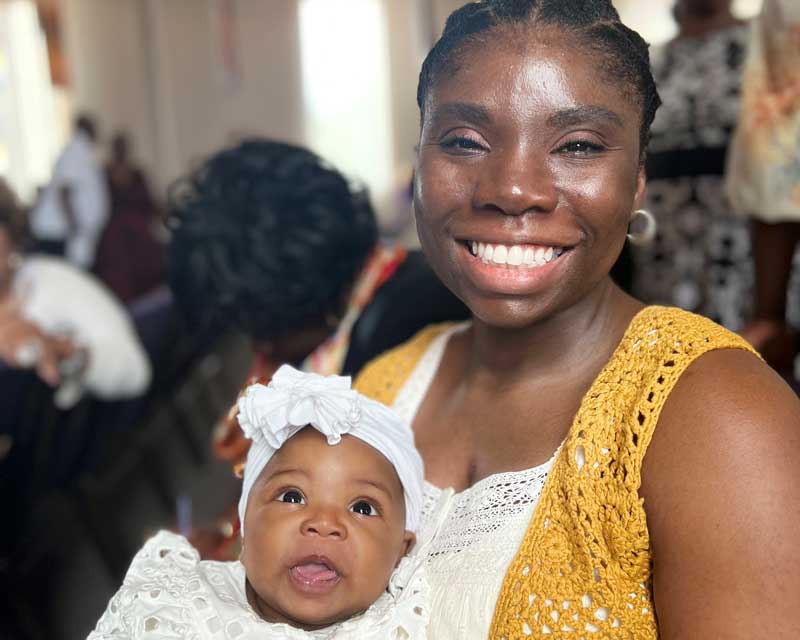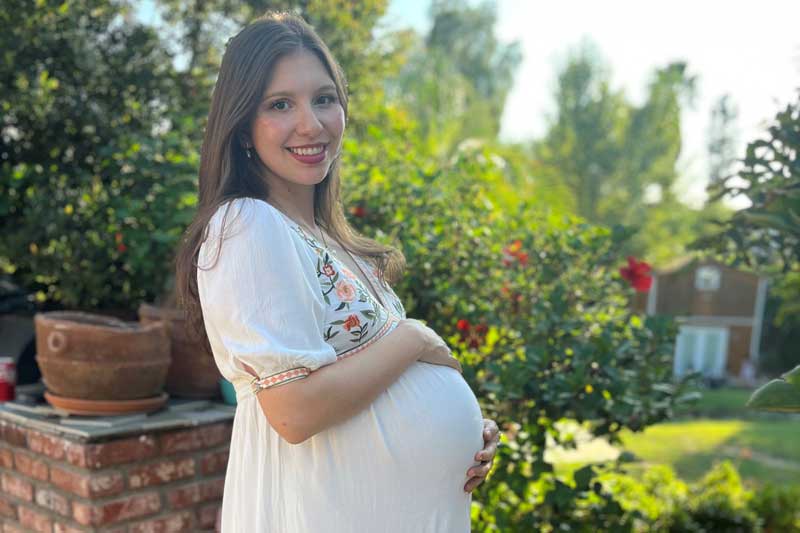Women and Congenital Heart Disease
Quick Facts
- Most women with congenital heart disease (CHD) can have safe pregnancies and deliver healthy babies. Still, there can be some risks.
- Women with CHD should check with their health care team about family planning.

Naomi was born with tetralogy of Fallot.
Menstruation with CHD
Some adolescents with CHD, especially those with moderate to complex or longstanding cyanotic CHD, may start their menstrual cycles later than their peers. In cyanotic CHD, lower oxygen levels in the blood can affect growth and development. This may cause delayed or irregular menstrual cycles.
Birth control and family planning with congenital heart disease
Women with CHD who are able to become pregnant should talk about family planning with an adult congenital heart disease (ACHD) cardiologist and their gynecologist to learn:
- Best and safest birth control options for specific heart conditions
- Whether genetic testing should be considered
- How a pregnancy could affect their health
- What to expect when planning for delivery
There can be an increase in the risk of blood clots for:
- Some types of CHD
- Heart-related conditions, including arrhythmias and heart failure
- Presence of a mechanical heart valve
Because of this, some women may be advised to avoid birth control containing estrogen. These include combined birth control pills, ring and patch.
Prepregnancy counseling is an important part of care for women with CHD. You can work with your primary care professional, gynecologist and ACHD cardiologist to identify any risks related to becoming pregnant. This can also ensure that your long-term heart health is considered with choosing birth control and planning for future pregnancies.
Pregnancy with CHD
Most women with CHD can have a safe pregnancy and a healthy baby. However, the normal changes of pregnancy put extra stress on the body and the heart, which is working harder to pump blood to the baby.

Victoria was born with an atrial septal defect and a hole in her heart.
Women with CHD may be at higher risk for other complications, including:
- Anemia (blood doesn’t carry enough oxygen to your body)
- Hemorrhage (blood loss)
- High blood pressure
- Diabetes
- Infectious diseases
- Mental health issues
Women with CHD should talk to an ACHD cardiologist and an obstetrician experienced in high-risk pregnancies before becoming pregnant. A prepregnancy evaluation will give health care professionals time to manage any existing concerns and improve maternal health to become pregnant. The health care team will also offer information on the safety of a pregnancy for mother and child.
Women with CHD may also want to ask for genetic counseling. This can help you understand the chance of having a child with CHD or another inherited condition. The chance of having a baby with CHD varies based on the defect. Genetic counseling can help address concerns about starting a family.
Some types of CHD carry very high risk during pregnancy and avoiding pregnancy may recommended. These include:
- Pulmonary hypertension
- Advanced heart failure
- Dilated (enlarged) aorta
Women who remain cyanotic have a significantly higher risk of serious complications during pregnancy. These can include stroke, heart failure and pregnancy loss. In these cases, women are often advised to avoid pregnancy.
If you have a high-risk condition, it is essential to work closely with an ACHD cardiologist and a maternal-fetal medicine specialist. Talk with them about your options and the safest approach to family planning.
Most women with CHD can safely deliver vaginally unless specific complications or high-risk cardiac conditions make another approach safer. Routine cesarean delivery is not recommended for patients with CHD unless there is a clear medical indication.
View fact sheet: CHD and Family Planning (PDF)
Risks of CHD to the Baby
Most babies born to mothers with CHD have healthy hearts. Still, the risk of CHD in the baby is higher than in the general population. For this reason, your health care team may recommend a fetal echocardiogram, usually between 18 and 22 weeks of pregnancy. This is an ultrasound that provides a detailed view of the developing heart.
After birth, newborns have pulse oximetry screening. This measures oxygen levels in the blood to help detect critical CHD. The screening is painless and non-invasive. It is typically performed on the baby’s right hand and one foot around 24 hours after birth. This screening is required in all 50 states and Washington, D.C.





